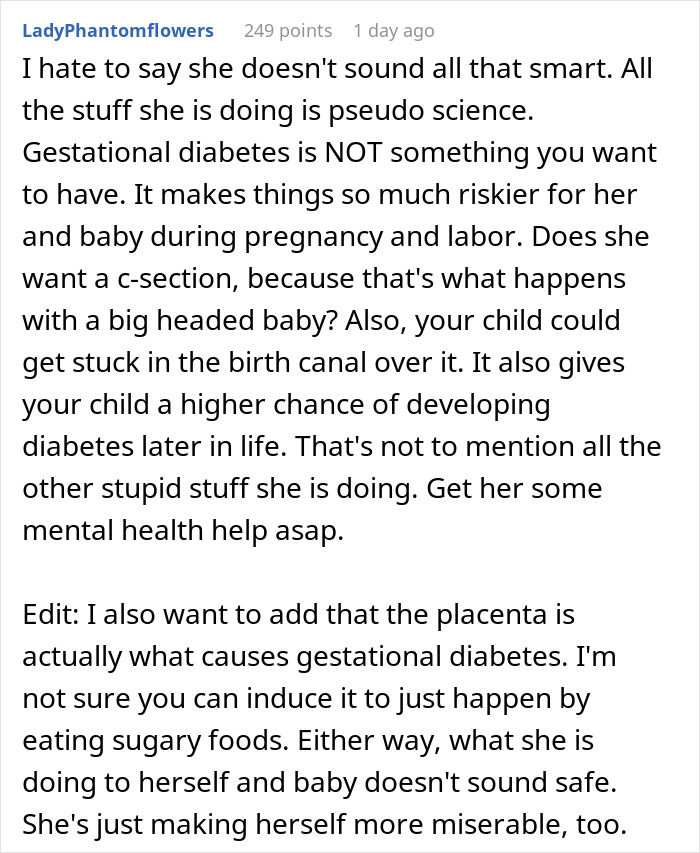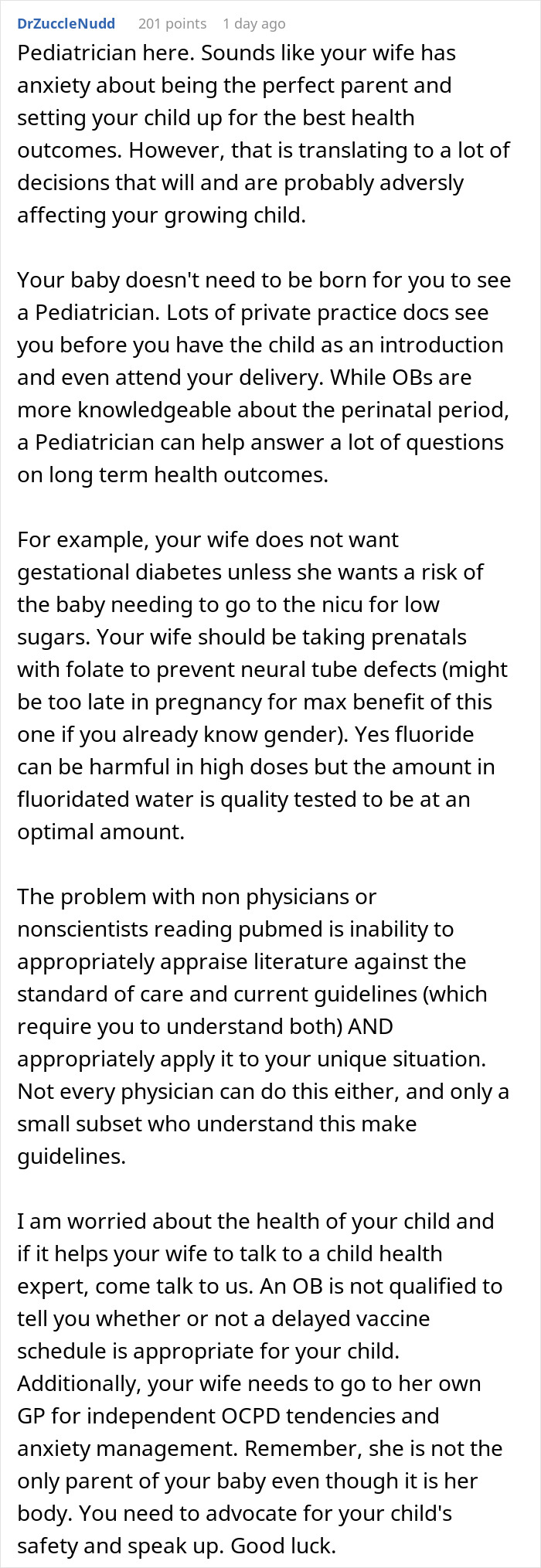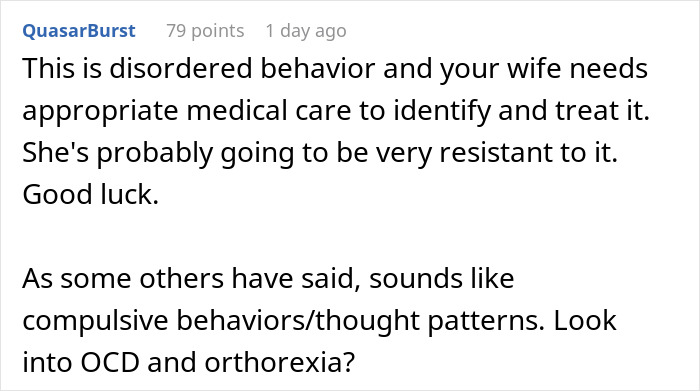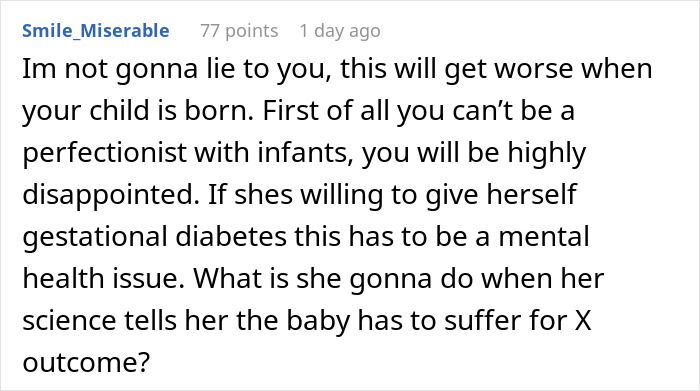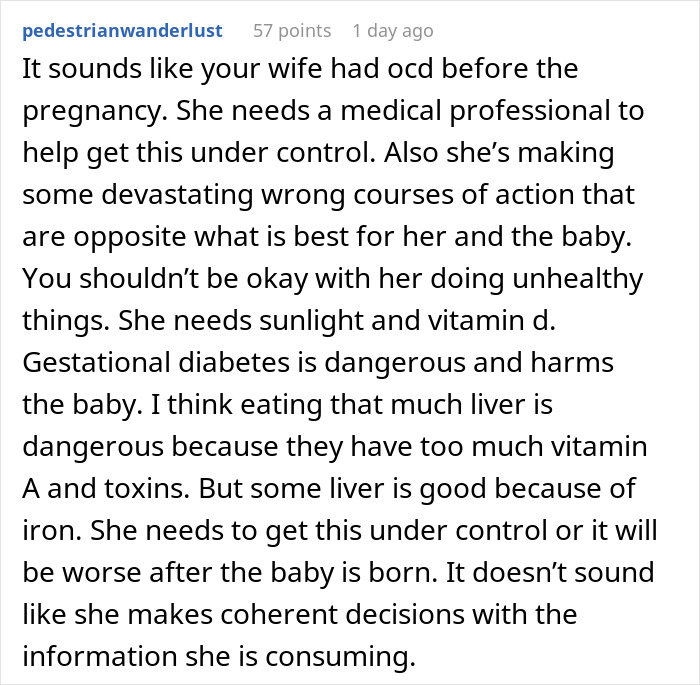There’s nothing more beautiful than the miracle of life. But before parents are holding a tiny infant in their arms in the hospital, someone will have to experience the joy of pregnancy. Morning sickness, intense cravings, swollen feet, fatigue and needing to use the bathroom every hour are only a handful of the symptoms moms get to enjoy before giving birth.
But pregnancy is capable of causing more than purely physical symptoms. One man recently reached out to Reddit asking for advice, as his wife’s behavior has become concerning since she got pregnant. Below, you’ll find the full story, as well as some of the replies invested readers left him.
Pregnancy can be an extremely stressful time for anyone

Image credits: Prostock-studio / Envato (not the actual photo)
But after noticing some bizarre behavior from his wife, this man is wondering if he should intervene


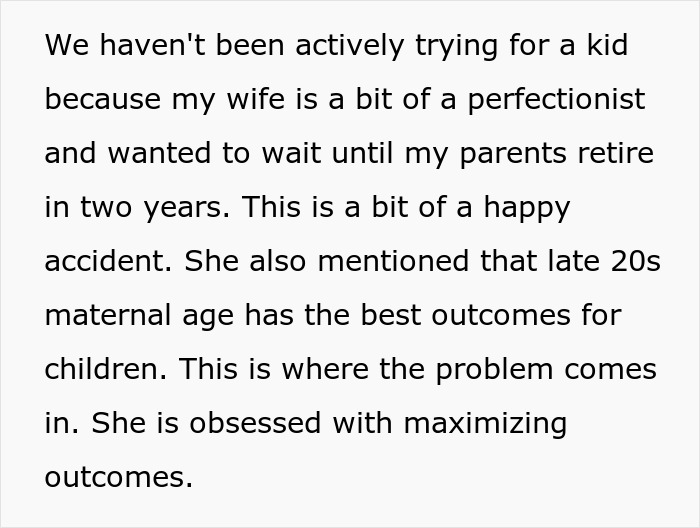





Image credits: Prostock-studio / Envato (not the actual photo)





Image credits: Large-Proposal6327
Later, the concerned husband responded to a few readers and shared some more background information
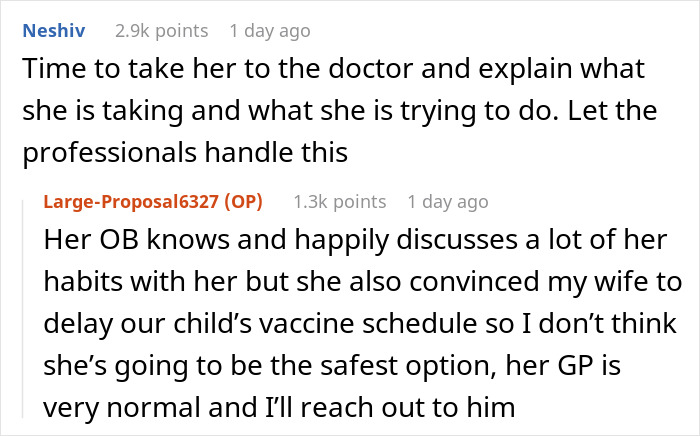
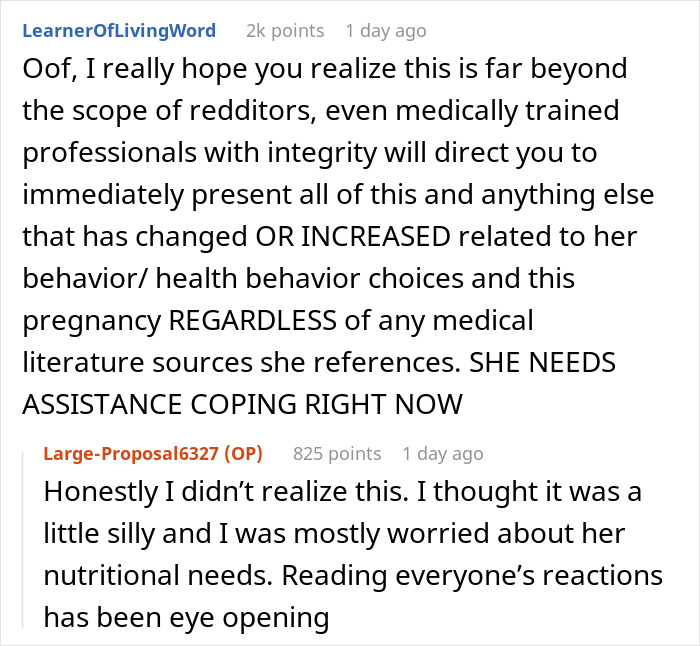
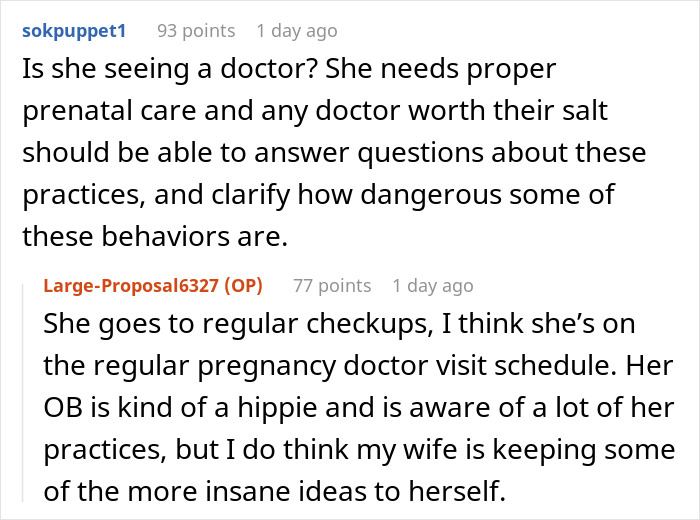

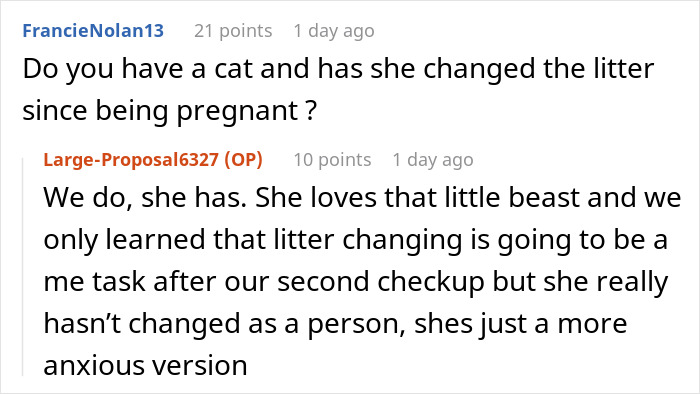
Pregnancy comes with a long list of physical and mental symptoms
When a couple learns that they’ve got a little bun in the oven, they are likely overwhelmed with excitement. They have less than 9 months to plan, prepare and get ready to invite a tiny new member into their family. As far as the symptoms that pregnant women experience go, we all know the obvious, physical ones: nausea and perhaps vomiting, increased urination, fatigue, food aversions and cravings, back pain and more.
But there are plenty of symptoms we can’t see with our own eyes that pregnant women experience as well. Due to the rapid hormone changes and all of the upcoming changes to a woman’s life, Better Health notes that it’s expected for pregnant women to have mood swings as early as the first trimester.
During the second trimester, a woman might feel less fatigued and moody, but her mind may start wandering more. She might have trouble focusing at work or at home, and she may start experiencing “pregnancy brain.” Many moms report struggling to remember details, focus on tasks or keep their attention on anything, which is commonly referred to as pregnancy brain. This can be caused by a combination of hormone changes, sleep deprivation and stress or anxiety.
Many women struggle with depression and anxiety while pregnant

Image credits: natanavo / Entavo (not the actual photo)
During a mom’s third trimester, she may continue to be forgetful, and she will likely become increasingly uncomfortable and annoyed by the discomfort of pregnancy. She may also start to worry about her upcoming delivery and have an even harder time sleeping.
Because of all of the changes pregnant women experience, to their bodies and their lives, it’s important that they prioritize their mental health. According to the MGH Center for Women’s Mental Health, between 10-15% of women experience clinically significant depressive symptoms while pregnant, and up to 20% struggle with mood or anxiety disorders during their pregnancies.
Some of the symptoms of perinatal depression and anxiety that might arise are panic attacks, persistent worry focused on health concerns, obsessive or compulsive behavior, having no interest in things that bring joy, being nervous or on edge, fear of being alone with the baby and engaging in risk taking behavior.
It’s crucial for expecting mothers to prioritize their mental health

Image credits: YuriArcursPeopleimages / Envato (not the actual photo)
As far as how women can be sure to prioritize their mental health during pregnancy, Better Health recommends ensuring that they get adequate sleep, find time each week to do something they enjoy, allow family and friends to help, continue to exercise and eat well. And, of course, it’s always wise to seek guidance from a mental health professional and have someone to talk to.
Some experts even believe that psychotherapy should be a requirement for expecting mothers. “We could add mental health care to routine prenatal care,” associate professor of psychiatry and obstetrics from Columbia University, Catherine Monk, told The Washington Post. “Let’s start earlier in pregnancy to prevent these depressions, and help women be physically, mentally and emotionally as healthy as possible.”
We would love to hear your thoughts on this situation in the comments below, pandas. If you were in this husband’s shoes, how would you have reacted to your wife’s behavior? Feel free to share, and then if you’re interested in reading another Bored Panda article discussing what pregnancy is really like, check out this piece next.
Concerned readers were quick to share their thoughts, along with advice for the couple


